Archived Programs
- 10th Anniversary
- 5th Anniversary
- Adamize
- Communitas
- Critic Proof
- Culturally Determined
- Democracy in America
- Drezburt
- Feminine Chaos
- Fireside Chats
- Foreign Entanglements
- Free Will
- Friedersdorf
- Global Dispatches
- The Good Fight round 1
- The Good Fight round 2
- Interrobang‽
- Lessons Learned
- The Mind Report
- Percontations
- The Posner Show
- Pros & Conn
- Psychopolitica
- Rational Actors
- Science Faction
- Science Saturday
- The Score
- UN Plaza
- Values Added
- Washington Monthly
- Washington Squares
- The Week in Blog
- Woodruff & Strauss
- Worldwise
The Glenn Show
Glenn Loury invites guests from the worlds of academia, journalism and public affairs to share insights on economic, political and social issues.
Subscribe to The Glenn Show via podcast or email

On The Glenn Show, Glenn and John talk about the link between inequality and single parenthood—and why this is such a controversial topic to discuss. John is concerned about single women having more than one child. Do we know what to do to keep someone out of poverty? John thinks that by focusing on inequality instead of single-parent families, liberals are putting the cart before the horse. They discuss David Brooks’s recent column on inequality and Robert Reich’s harsh critique of it. Glenn emphasizes that when it comes to discussing poverty, “culture” shouldn’t be a dirty word.
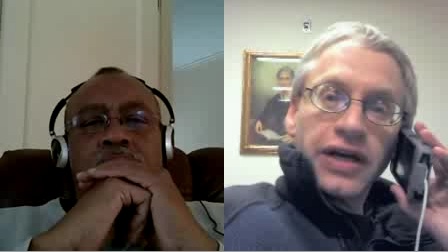
On The Glenn Show: What does Martin Luther King, Jr. Day mean 45 years after King’s death? Glenn and Harold note King’s radicalism—and the resistance he faced—in the late ’60s. Harold says MLK’s view of political power holds lessons for today’s progressives. What would have happened if King had not been assassinated at the age of 39? Turning to current politics, Glenn and Harold debate the GOP’s campaign to pass voter ID laws. Harold laments that progressives are often bored by the levers of conventional political power, and offers King as a counterexample.
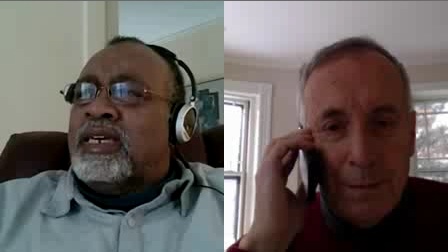
On The Glenn Show, Larry makes the case for abolishing the corporate income tax. He describes his economic model, and critiques the demand-side theories of Paul Krugman. So why should the corporate income tax be done away with? Glenn wonders whether there’s a better way to counteract the tax-rate “race to the bottom.” Larry’s argues that his plan would boost Americans’ incomes by 8%. Plus: Glenn and Larry debate whether technological change is hurting American workers.
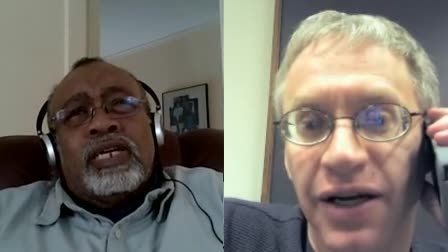
On The Glenn Show, Glenn and Harold discuss their reflexive distaste for social justice bandwagons. For example, Glenn agrees that poverty is a problem, but thinks raising the minimum wage is an “intellectually impoverished” response. Harold has advice for the minimum wage activists: stick to the facts. Next, Glenn and Harold argue over the relative merits of incrementalism vs. radicalism. Harold is jarred by the discrepancy between Paul Ryan’s recent anti-poverty campaign and his proposed budget. They close by debating poverty and political correctness.
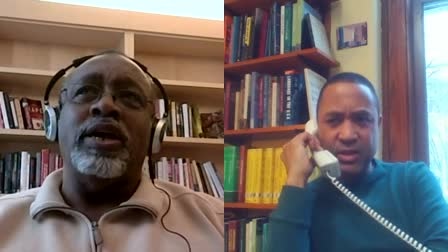
On The Glenn Show, Glenn and John consider the recent controversy over Santa Claus’s race. Why has this debate sparked such strange passion on both sides? They discuss what John identifies as a tendency by some African Americans to be seen as “serious black people.” Glenn counsels that blacks must strive to not let race dominate their lives, and recalls Amartya Sen’s prescription about the non-inevitability of identity. They consider how James Baldwin both exposed and embodied some of these issues. They close with what could be termed the Trayvon Martin counterargument.
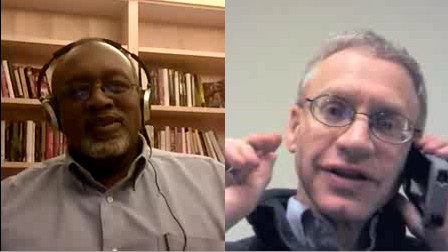
On The Glenn Show, Glenn and Harold discuss the death of Nelson Mandela and why they weren’t more committed to anti-apartheid activism in the 1980s. Was the African National Congress’s use of violent resistance defensible in retrospect? This leads to a broader reconsideration of the Cold War and the savoriness of various regimes the US supported. Glenn argues Mandela has been sanitized and reduced in death, then applies the lessons of South Africa to Israel and Palestine. Is Israel’s occupation of the West Bank comparable to apartheid? Harold suggests that all national identities are based on forgetting, and that Mandela is admirable in this context.
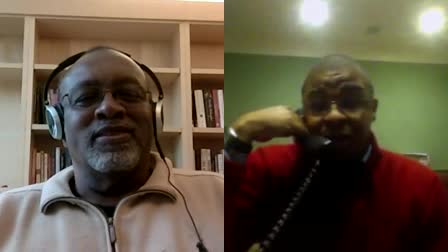
On The Glenn Show, Glenn talks to Roland about education reform. How would an economist tackle the racial achievement gap? Does it work to pay kids to learn? Roland reflects on the hardest part of improving schools in New York City, and reveals the five habits of highly effective schools. Glenn asks Roland about the surprising results of his educational experiments in Houston. Finally: Have we found the solution to the problem of underperforming schools?

On The Glenn Show, Glenn talks to Eldar about his new book, Scarcity: Why Having Too Little Means So Much. Eldar argues that “attention scarcity” sheds light on the behavior of poor parents. Glenn asks Eldar about the politics of poverty, and Eldar cracks a joke about incorrigible economists who feel threatened by his research. Glenn asks Eldar to use his research to explain the Great Recession. Finally, they consider how advertisers profit from attention scarcity—while the public loses.

On The Glenn Show, Glenn and Ross discuss the recent book by Anat Admati and Martin Hellwig, The Bankers’ New Clothes. Ross says that the government is inadvertently subsidizing bank fragility. Can anything be done about “too big to fail“? They explain the real reason that Wall Street wants to keep equity low and debt high—more money for bank executives and shareholders. Is it unrealistic to think that government could ever rein in the financial system? Glenn and Ross critique Admati and Hellwig on how accurately regulators can assess bank assets. Ross closes by explaining why he’s not optimistic about removing catastrophic risk from the financial system.

On The Glenn Show, the topic is the student protest at Brown University that thwarted a speech by NYPD Commissioner Ray Kelly. Glenn accuses the protesters of “intellectual thuggery.” John says the blame ultimately lies with Brown professors who taught their students poorly, but Glenn defends Brown’s ideological heterogeneity. John argues that undergrads are not truly taught both sides on issues where race and politics intersect. Glenn and John present the more cogent case against stop-and-frisk policing. John emphasizes the performative aspect of student protests. Plus: The way in which racial debates are harder now than in 1963.
Archives
- April 2024(10)
- March 2024(14)
- February 2024(13)
- January 2024(15)
- December 2023(15)
- November 2023(17)
- October 2023(16)
- September 2023(18)
- August 2023(15)
- July 2023(14)
- June 2023(17)
- May 2023(15)
- April 2023(16)
- March 2023(19)
- February 2023(15)
- January 2023(16)
- December 2022(16)
- November 2022(16)
- October 2022(17)
- September 2022(19)
- August 2022(15)
- July 2022(17)
- June 2022(15)
- May 2022(17)
- April 2022(18)
- March 2022(15)
- February 2022(15)
- January 2022(16)
- December 2021(21)
- November 2021(19)
- October 2021(22)
- September 2021(19)
- August 2021(22)
- July 2021(24)
- June 2021(18)
- May 2021(18)
- April 2021(19)
- March 2021(19)
- February 2021(19)
- January 2021(19)
- December 2020(21)
- November 2020(19)
- October 2020(19)
- September 2020(21)
- August 2020(21)
- July 2020(20)
- June 2020(22)
- May 2020(19)
- April 2020(22)
- March 2020(18)
- February 2020(13)
- January 2020(18)
- December 2019(12)
- November 2019(14)
- October 2019(16)
- September 2019(15)
- August 2019(19)
- July 2019(14)
- June 2019(17)
- May 2019(18)
- April 2019(15)
- March 2019(18)
- February 2019(16)
- January 2019(19)
- December 2018(18)
- November 2018(15)
- October 2018(19)
- September 2018(16)
- August 2018(14)
- July 2018(15)
- June 2018(12)
- May 2018(13)
- April 2018(18)
- March 2018(16)
- February 2018(13)
- January 2018(10)
- December 2017(11)
- November 2017(14)
- October 2017(13)
- September 2017(10)
- August 2017(16)
- July 2017(17)
- June 2017(18)
- May 2017(18)
- April 2017(17)
- March 2017(19)
- February 2017(12)
- January 2017(14)
- November 2016(13)
- October 2016(11)
- September 2016(12)
- August 2016(9)
- July 2016(16)
- June 2016(17)
- May 2016(12)
- April 2016(16)
- March 2016(19)
- February 2016(12)
- January 2016(17)
- December 2015(17)
- November 2015(16)
- October 2015(17)
- September 2015(21)
- August 2015(22)
- July 2015(25)
- June 2015(26)
- May 2015(23)
- April 2015(25)
- March 2015(28)
- February 2015(28)
- January 2015(22)
- December 2014(28)
- November 2014(26)
- October 2014(30)
- September 2014(26)
- August 2014(26)
- July 2014(28)
- June 2014(27)
- May 2014(32)
- April 2014(26)
- March 2014(30)
- February 2014(28)
- January 2014(30)
- December 2013(28)
- November 2013(26)
- October 2013(26)
- September 2013(26)
- August 2013(25)
- July 2013(30)
- June 2013(37)
- May 2013(28)
- April 2013(30)
- March 2013(30)
- February 2013(31)
- January 2013(33)
- December 2012(34)
- November 2012(35)
- October 2012(42)
- September 2012(35)
- August 2012(38)
- July 2012(30)
- June 2012(32)
- May 2012(33)
- April 2012(33)
- March 2012(43)
- February 2012(34)
- January 2012(28)
- December 2011(30)
- November 2011(33)
- October 2011(36)
- September 2011(37)
- August 2011(34)
- July 2011(36)
- June 2011(36)
- May 2011(33)
- April 2011(36)
- March 2011(36)
- February 2011(34)
- January 2011(35)
- December 2010(38)
- November 2010(43)
- October 2010(38)
- September 2010(36)
- August 2010(38)
- July 2010(38)
- June 2010(38)
- May 2010(38)
- April 2010(35)
- March 2010(41)
- February 2010(35)
- January 2010(40)
- December 2009(35)
- November 2009(35)
- October 2009(41)
- September 2009(39)
- August 2009(41)
- July 2009(43)
- June 2009(41)
- May 2009(39)
- April 2009(40)
- March 2009(38)
- February 2009(35)
- January 2009(42)
- December 2008(36)
- November 2008(38)
- October 2008(45)
- September 2008(48)
- August 2008(45)
- July 2008(49)
- June 2008(48)
- May 2008(49)
- April 2008(45)
- March 2008(39)
- February 2008(38)
- January 2008(40)
- December 2007(33)
- November 2007(27)
- October 2007(31)
- September 2007(26)
- August 2007(32)
- July 2007(27)
- June 2007(30)
- May 2007(30)
- April 2007(25)
- March 2007(23)
- February 2007(19)
- January 2007(18)
- December 2006(11)
- November 2006(14)
- October 2006(11)
- September 2006(10)
- August 2006(9)
- July 2006(8)
- June 2006(11)
- May 2006(12)
- April 2006(10)
- March 2006(9)
- January 2006(9)
- December 2005(10)
- November 2005(14)


